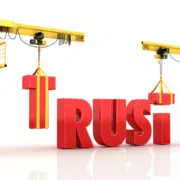SEO and Online Reputation Management: Why Your Digital Standing Matters!
Reputation management is vital to a business as it directly influences consumer trust and brand loyalty which ultimately affects a company’s bottom line. Did you also know that having a strong online reputation management plan in place can help raise your visibility in the digital landscape to help people find you and your services?
What is online reputation management?
Much like regular reputation management, online reputation management is about building a positive presence for your brand in the digital world. Along with traditional reputation management strategies like public relations, consistent messaging across all your owned media and testimonials or positive reviews from clients, this also means tracking brand mentions on social media, review sites and other product platforms as well as being an active contributor to the conversation.
What is the value of online reputation management?
Whether you’re B2C or B2B, more and more of your potential clients are turning to the internet to find their next purchases. According to PR Week, 52% of a company’s market value is attributed to its reputation.
For B2B companies:
- 62% of B2B buyers say a web search was one of the first three tools they used to find a solution.
- 9 out of 10 buyers say online content had a moderate to major effect on their purchasing decision
For B2C companies:
- 95% of customers read online reviews before buying a product
- Displaying online reviews increase conversion by 270%
With more and more clients turning to online information to help make decisions, it is time to take a firm hand with your online reputation management.
Along with playing an integral role in purchasing decisions, having a positive online reputation will help your organic search rankings and increase your chances of appearing in search results features such as the Local Pack, Featured Snippets, Knowledge Panels and more.
Tips for Managing Your Online Reputation
Traditional strategies like public relations and consistent messaging by your team are important steps for any reputation management strategy but maintaining a positive online reputation also involves both on- and off-site strategies:
Monitor Your Online Presence
If you don’t know what people are saying about you, how can you fix it? One of the best things about the digital landscape is that so much of it is trackable. How many reviews do you have? Are they positive or negative? How does your website rank? This can all be monitored in real time so you can be proactive and make any necessary changes to your company’s strategies.
Claim All of Your Online Assets
It is important to claim all your owned channels when possible, such as your Google Business Profile. This is not only a valuable and free tool to help share information about your organization, but it is important to claim it before someone else does. For those looking to increase their local and organic SEO reach, Google Business Profile plays an integral role in how Google perceives and shares their results.
Update Frequently
Reputation management is never a one and done strategy. As people share reviews and testimonials, it is important to respond to these in a timely fashion. If it is positive, a simple thank you message will suffice and get ready to use those great reviews in your own messaging. If it is a negative review, don’t be afraid to respond. Consumers respond more favorably to a company that responds to negative reviews. This is your chance to address the issue head on and either make it right for that client or make it right for future clients. Having consistent messaging already prepared can help you navigate these challenging situations.
Another important area to update is your owned media platforms like your website, social media platforms and business profiles like Google business profile. Is your location closing for a holiday, changing locations or hours? You will need to update not only your website but all your off-site platforms like your Google Business Profile. You should also share up to date images of your work and locations to help clients get a better sense of who you are. Search engines do not want to share outdated information so make sure you’re checking your information regularly. In this growing digital world, it’s time to take control of your online reputation management. Along with traditional strategies, incorporating digital strategies will help you create a strong brand that will help people locate you no matter where they are searching. If you’re not sure where to start, Chartwell Agency can help.









